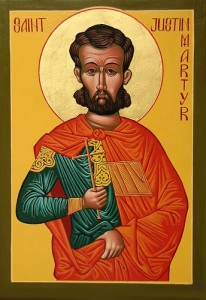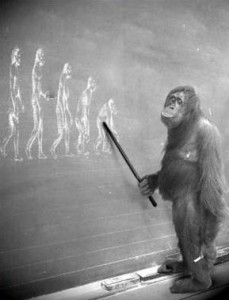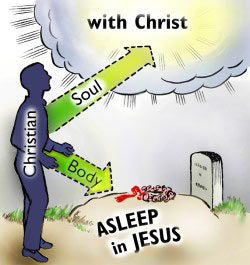Tactics For Defending the Faith in a Fallen World
 Some might think that an apologetics workshop is a bit out of place at the Future Congress. It may seem so on the surface, but I think upon closer examination not only its relevance but its urgent necessity will come to light. The Gospel has always been an offense to prideful men but lately things have escalated. Spiritual warfare largely takes place in the life of the mind. When Satan enticed Eve to sin he did it by implanting a false idea (Gen 3:1). My workshop Tactics for Defending the Faith in a Fallen World is designed to equip you to engage in the realm of ideas.
Some might think that an apologetics workshop is a bit out of place at the Future Congress. It may seem so on the surface, but I think upon closer examination not only its relevance but its urgent necessity will come to light. The Gospel has always been an offense to prideful men but lately things have escalated. Spiritual warfare largely takes place in the life of the mind. When Satan enticed Eve to sin he did it by implanting a false idea (Gen 3:1). My workshop Tactics for Defending the Faith in a Fallen World is designed to equip you to engage in the realm of ideas.
What would you say if a friend said, “It’s wrong for missionaries to try to change peoples religious beliefs. We should respect their indigenous culture”?
How about when your neighbor says, “Well you can’t really just accept the Bible it’s been translated so many times that no one can really be sure what it originally said”?
Or how about when your son or daughter comes home from school and tells you that their teacher taught them that, “All religions are equally true and valid for those who believe in in them”?
You do not have to be an expert on every subject to respond to these ideas and promote the truth of the Gospel. There is a simple and effective tactical method that anyone can learn to deal with these and more.
If the world hates you, know that it has hated me before it hated you. If you were of the world, the world would love you as its own; but because you are not of the world, but I chose you out of the world, therefore the world hates you. – John 15:18-19
Biblical Christianity is becoming increasingly marginalized in America. For decades, the American Civil Liberties Union (ACLU) and other radical anti-Christian groups have been on a mission to eliminate the expression of Christian values in the public square. The Alliance Defense Fund is a legal organization committed to defending religious liberty for Christians that has successfully defended these following cases recently:
- A then-second-grade student at a public school in New Jersey was told that she could not sing “Awesome God” in an after-school talent show.
- A pastor of a church in Arizona was ordered to stop holding meetings or Bible studies in his private home.
- Five Christian men were threatened with arrest for sharing their faith on a public sidewalk in Virginia.
- A Christian student at a university in Missouri was threatened with having her degree withheld because she refused to write a letter to the state legislature expressing her support for homosexual adoption.
- A pro-life nurse at a hospital in New York was forced to participate in a late-term abortion, even though her workplace had agreed in writing to honor her religious convictions.
They report that the persecution and censorship is becoming prevalent especially at the University. Unfortunately, the future promises to become more precarious. All Christians need apologetics skills!
But I am afraid that as the serpent deceived Eve by his cunning, your thoughts will be led astray from a sincere and pure devotion to Christ. – 2 Corinthians 11:3
What is worse are the incoherent beliefs expressed by professing Christians. According to the 2008 Pew survey results:
- 78% overall say there are “absolute standards of right and wrong,” but only 29% rely on their religion to delineate these standards. The majority (52%) turn to “practical experience and common sense,” with 9% relying on philosophy and reason, and 5% on scientific information.
- 74% say “there is a heaven, where people who have led good lives are eternally rewarded,” but far fewer (59%) say there’s a “hell, where people who have led bad lives and die without being sorry are eternally punished.”
- 70%, including a majority of all major Christian and non-Christian religious groups except Mormons, say “many religions can lead to eternal life.”
- 68% say “there’s more than one true way to interpret the teachings of my religion.”
http://www.usatoday.com/news/religion/2008-06-23-pew-religions_N.htm
Behold, I am sending you out as sheep in the midst of wolves, so be wise as serpents and innocent as doves. -Matthew 10:16
Jesus taught that when you find yourself a sheep amidst wolves, be innocent but shrewd. This teaching calls for a tactical approach. We are called to be ambassadors for Christ and ministers of reconciliation (2 Cor 5:20). Accordingly, although there is real warfare going on, our engagements should look more like diplomacy than combat. The training offered in this workshop is based on the tried and true techniques I learned myself from master Christian apologist Greg Koukl of Stand to Reason. It is my honor and privilege to pass this valuable teaching on to you.In this workshop you will be introduced for techniques to:
- Initiate conversations effortlessly
- Stop challengers in their tracks and turn the tables
- Graciously and effectively expose faulty thinking
- Maneuver through mine fields
- Present the truth clearly, cleverly, and persuasively
The workshop will meet for two one hour sessions Friday July 22 at 3:00 and then Saturday at 3:30. I look forward to meeting you in Branson!








